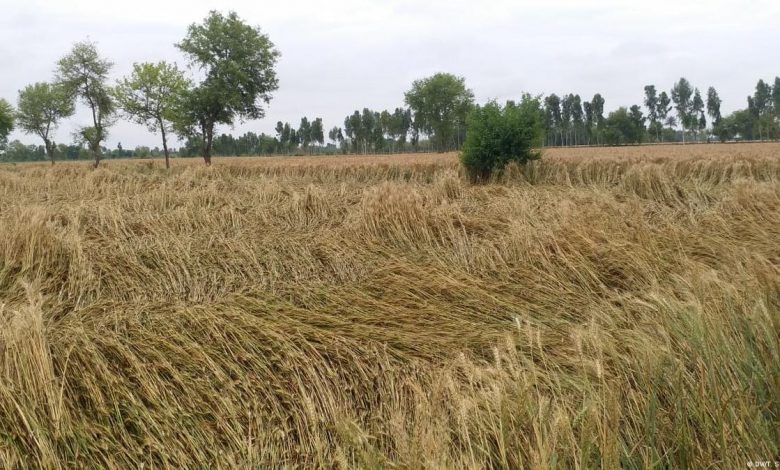
In a recent onslaught of adverse weather conditions, Khyber Pakhtunkhwa's agricultural sector has borne the brunt of climate change, with heavy rains and hailstorms wreaking havoc across the province. The repercussions of these extreme weather events extend far beyond damaged crops, impacting the livelihoods of countless farmers and threatening food security in the region.
According to the latest reports from the Khyber Pakhtunkhwa Agriculture Department, the agricultural landscape has been drastically altered, with over 36,000 acres of crops and gardens suffering severe damage. Wheat, a staple crop in the region, has been particularly hard hit, with 28,882 acres affected in 15 districts. The aftermath of the deluge is visible in districts like DI Khan, Mardan, and Nowshera, where wheat fields lay ravaged, leaving farmers grappling with substantial losses.
The southern district of DI Khan emerges as a focal point of agricultural distress, bearing the brunt of the recent onslaught. With 7,290 acres of wheat fields submerged under floodwaters, farmers like Tayyab Muhammad Zai from Manzorey village near Charsada Khyali River are reeling from the devastation. Zai recounts the heartbreak of witnessing his carefully tended wheat and sugarcane crops succumb to the relentless deluge, emphasizing the urgent need for support from government agencies to rebuild shattered livelihoods.
However, the impact of the climate crisis transcends wheat fields, with fruit orchards, vegetables, and animal fodder also bearing the brunt of nature's fury. Districts such as Swat, Orakzai, Upper and Lower Chitral, Kohat, and Charsadda grapple with widespread crop damage, signaling a dire situation for farmers across the province.
In response to the unfolding crisis, agricultural experts and officials are calling for concerted action to address the root causes of climate change and mitigate its impact on vulnerable communities. Professor Dr. Jahan Bakht, Vice Chancellor of Peshawar Agricultural University, underscores the urgent need for adaptive farming practices to safeguard against future climate-related disasters. He stresses the importance of empowering farmers with knowledge and resources to navigate the changing climate landscape effectively.
Sharafat Afridi, an officer of the Agriculture Department, echoes these sentiments, emphasizing the role of farmers in adopting resilient agricultural techniques. He urges farmers to adjust planting schedules and seek guidance from agricultural experts to protect their crops from the vagaries of weather extremes.